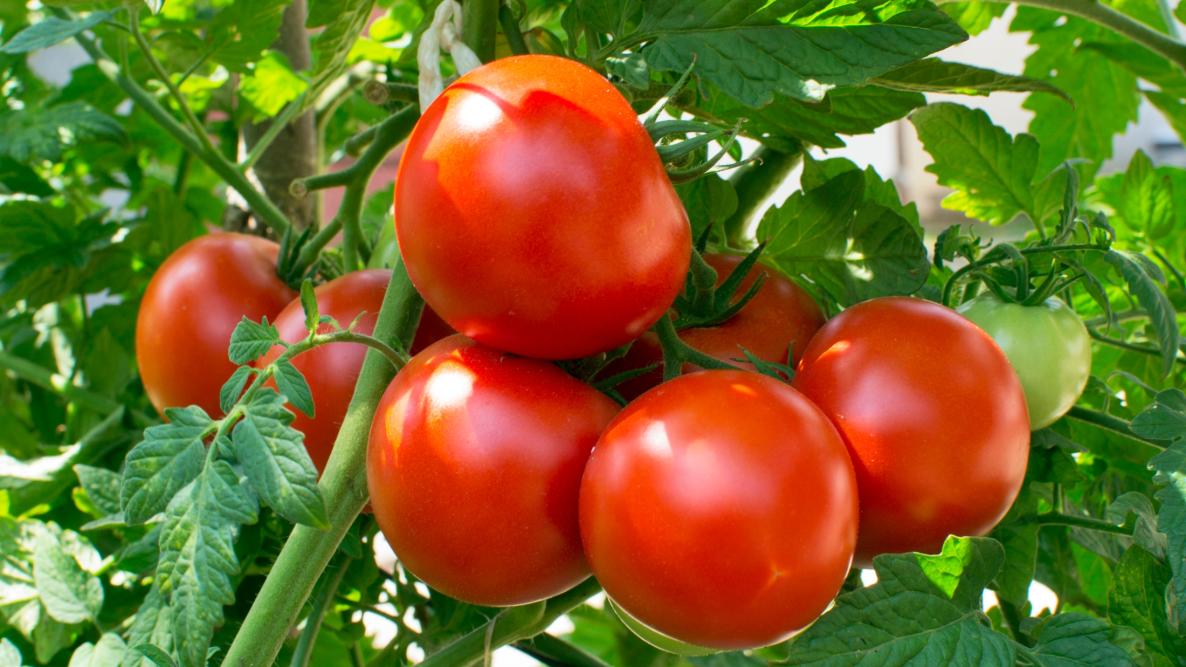Starting a Tomato Farming Business in Africa is a great way to make a living. It is also a great way to contribute to the local economy and to ensure that the continent has a steady supply of tomatoes to meet its needs. Tomato farming in Africa is a lucrative business and can provide a steady income for those who are willing to put in the hard work.
This guide will provide an overview of the steps necessary to start a successful tomato farming business in Africa, including advice on the best locations to set up your tomato farm, the best practices for growing tomatoes, and tips on how to market and sell your produce. With the right guidance, you can start a successful tomato farm in Africa that will provide a steady income for years to come.
Identifying the Best Tomato Varieties to Grow in African Climates

Tomatoes are a popular and versatile crop that can be grown in many climates, including those across Africa. African climates vary greatly, so it can be difficult to identify which tomato varieties will grow well in the region. Fortunately, there are a few varieties that are well-suited to African climates and can provide gardeners with delicious, high-yielding tomatoes.
One of the best tomato varieties for African climates is the ‘Komati’ tomato. This variety is heat-resistant and can tolerate temperatures up to 45°C (113°F). It is also resistant to many common diseases, including powdery mildew, Fusarium wilt, and Verticillium wilt. The ‘Komati’ produces large, round, red tomatoes that are juicy and full of flavor. Another excellent variety for African climates is the ‘Tigress’ tomato. This variety is known for its high yields and resistance to common diseases.
It produces large, firm, and flavorful tomatoes that are ideal for sauces and canning. The ‘Tigress’ is also highly resistant to drought, making it a great choice for arid climates.
Finally, the ‘Lemon Boy’ tomato is an excellent choice for African climates. It is heat-tolerant and produces sweet, juicy, yellow tomatoes that are perfect for salads and snacking. The ‘Lemon Boy’ is also resistant to common diseases and thrives in a variety of soils.
These are just a few of the many tomato varieties that can be grown in African climates. With the right variety, gardeners can enjoy a bountiful harvest of flavorful tomatoes.
How to Source Quality Seeds for Tomato Farming in Africa
Tomato farming in Africa offers a unique opportunity for both commercial and small-scale growers to benefit from the high demand for this popular crop. However, the success of any tomato farm depends largely on the quality of the seeds used. To ensure the best possible yield and quality, sourcing quality seeds is essential.
When sourcing tomato seeds, the first step is to identify the variety of tomato that is best suited to the local climate and growing conditions. Different varieties will thrive in different environments, so it is important to select the most appropriate kind. Once the variety has been chosen, the next step is to source seeds from a reliable supplier. Reputable seed suppliers in Africa should be able to provide a variety of different varieties, as well as information on the characteristics of each variety.
This information should include the average yield, disease resistance, and the best time to sow and harvest. It is also important to select a supplier that offers a guarantee on the quality of their seeds. This will ensure that the seeds are of the highest quality, and that any potential problems are addressed promptly. In addition to selecting a reliable supplier, it is important to inspect the seeds before purchasing them. This includes checking for signs of disease or insect damage.
Any seeds that are not of the highest quality should be discarded. When it comes to tomato farming in Africa, sourcing quality seeds is essential for success. It is important to identify the best variety for the local conditions, find a reliable supplier, and inspect the seeds before purchase. With the right seeds, tomato farmers in Africa can look forward to a successful harvest.
Implementing the Right Irrigation and Fertilization Strategies for Maximum Yields
Proper irrigation and fertilization strategies are essential for maximizing crop yields and ensuring optimal plant health. While the specific strategies needed vary based on crop type and growing conditions, there are some universal principles that should be followed when implementing an irrigation and fertilization plan. Irrigation is the process of supplying water to crops, and it is essential for crop growth and development.
The frequency and amount of water needed depends on factors such as climate, soil type, and crop type. It is important to ensure that the water is applied evenly and that the soil remains moist but not saturated. Additionally, when using an irrigation system, it is important to monitor for any signs of runoff in order to avoid water waste and potential contamination of nearby bodies of water. Fertilizers are also an important part of a successful crop yield.
Fertilizers provide essential nutrients to the soil, which are then taken up by the plant roots. Different fertilizers are formulated for different crops, and the application rate should be adjusted based on crop needs. Applying too much fertilizer can lead to soil contamination and nutrient leaching, while applying too little can lead to nutrient deficiencies and poor plant growth.
By properly implementing an irrigation and fertilization plan based on crop and soil needs, farmers can maximize their yields and ensure optimal plant health. By following these strategies, farmers can ensure that their crops have the necessary resources to grow and thrive.
Creating a Sustainable Business Model for Tomato Farming in Africa
Tomato farming in Africa is a lucrative business that has the potential to create sustainable economic growth, especially in rural and impoverished areas. With the right business model, tomato farming can be both profitable and sustainable.
The first step in creating a sustainable business model for tomato farming in Africa is to identify the key players in the market. These include farmers, distributors, buyers, and consumers. Each of these players will have a different role in the business model.
The second step is to develop a production plan. This involves determining the type of tomatoes to be grown, the size of the production, and the resources needed. It is important to consider the climate, soil conditions, and pest control needs of the region. In addition, it is important to consider the cost of labor, inputs, and other resources needed for production.
The third step is to create a distribution plan. This involves determining the best way to move the tomatoes from the farm to the consumer. This could include working with local distributors or establishing a direct-to-consumer sales model. It is also important to consider the costs associated with the distribution process.
The fourth step is to develop a pricing strategy. This involves determining the best price point for the tomatoes in the market. This is an important part of creating a sustainable business model, as it is essential to ensure that the tomatoes are priced competitively in order to remain profitable. The fifth step is to develop a marketing plan. This involves identifying potential customers and creating a strategy to reach them. This could include creating a website or social media presence, attending trade shows or conferences, and advertising in local newspapers or magazines.
Finally, it is important to develop a system for monitoring the progress of the tomato farming business. This could include tracking production, sales, and profits. It is also important to monitor customer feedback and adjust the business model as needed. By following these steps, tomato farming in Africa can become a sustainable and profitable business. This business model can help to create economic growth and improve quality of life in rural and impoverished areas.
Best Practices for Selling Tomatoes in Africa’s Markets and Beyond
1. Understand the Market: Before attempting to sell tomatoes in African markets, it is important to understand the local market dynamics. Research the local market conditions to determine the best time to sell, the most popular varieties, and the typical price range.
2. Source Quality Produce: Quality is key when selling tomatoes in African markets. Make sure to source the freshest produce from local farmers and inspect it carefully before selling it.
3. Establish a Reputation: Establishing a good reputation is important for success in the market. Develop relationships with local farmers and vendors to ensure a steady supply of tomatoes.
4. Advertise: Advertising is a great way to increase awareness of your business. Try using local radio, television, and print media to promote your tomatoes.
5. Offer a Variety: Offer a variety of tomatoes to appeal to different tastes. Consider different shapes, sizes, and colors to appeal to diverse customer segments.
6. Package the Tomatoes: Packaging is another important factor to consider when selling tomatoes. Make sure the packaging is attractive and sturdy to protect the tomatoes and maximize their shelf life.
7. Develop an Online Presence: Developing an online presence is a great way to reach a larger audience. Consider creating a website, social media accounts, and email campaigns to promote your business and reach customers beyond the local market.
8. Provide Excellent Customer Service: Customer service is essential for success in the market. Make sure to provide friendly and helpful customer service to build customer loyalty and satisfaction.
Starting a tomato farming business in Africa can be a great opportunity for entrepreneurs to make a profitable income. It is important to research the market and the local economy to make sure that there is a need for tomatoes in the area. It is also important to establish a good business plan, secure funding, and create a business network. With the right approach and a bit of hard work, a tomato farming business in Africa can be very successful.



